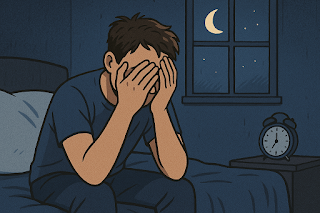The Silent Epidemic: How Stress Is Damaging Your Health
In today’s fast-paced world, stress has become an invisible yet pervasive force, silently eroding our physical and mental well-being. Many people dismiss stress as a normal part of life, but chronic stress is far from harmless—it’s a silent epidemic with devastating consequences for our health.
As a doctor , I’ve witnessed firsthand how unmanaged stress contributes to anxiety, depression, heart disease, and even premature aging. The problem? Most people don’t recognize the toll stress is taking until it’s too late.
How Stress Hijacks Your Body and Mind
Stress triggers the body’s "fight-or-flight" response, flooding your system with cortisol and adrenaline. In small doses, this is adaptive—it helps you react to danger. But when stress becomes chronic, it wreaks havoc:
1. The Brain Under Siege
- Chronic stress shrinks the prefrontal cortex (responsible for decision-making and self-control) while enlarging the amygdala (the fear center), making you more reactive and less rational.
- It impairs memory and focus, increasing the risk of Alzheimer’s and dementia later in life.
- Prolonged stress is a major driver of anxiety disorders and depression.
2. The Heart Pays the Price
- Stress raises blood pressure, damages blood vessels, and increases the risk of heart attacks and strokes.
- Studies show that people with high-stress jobs have a higher risk of cardiovascular disease.
3. A Weakened Immune System
- Cortisol suppresses immune function, making you more susceptible to infections, autoimmune diseases, and even cancer.
- Ever notice how you get sick after a stressful period? That’s not a coincidence.
4. Digestive Disruption
- Stress alters gut bacteria, leading to IBS, ulcers, and chronic inflammation.
- The gut-brain connection means stress can worsen mood disorders and vice versa.
5. Accelerated Aging
- Chronic stress shortens telomeres (the protective caps on DNA), speeding up cellular aging.
- It contributes to wrinkles, weight gain, and metabolic disorders like diabetes.
Breaking Free from the Stress Cycle
The good news? You can rewire your brain and body to handle stress better. Here’s what I recommend to my patients:
1. Mindfulness & Meditation
- Just 10 minutes a day of mindfulness meditation can lower cortisol levels and improve emotional regulation.
2. Physical Movement
- Exercise releases endorphins , nature’s stress relievers. Even a daily walk helps.
3. Sleep Hygiene
- Poor sleep exacerbates stress. Aim for 7-9 hours and establish a calming bedtime routine.
4. Social Connection
- Loneliness amplifies stress. Prioritize meaningful relationships—they buffer against its effects.
5. Professional Support
- If stress feels overwhelming, psychitric help can be life-changing.
Final Thoughts
Stress isn’t just "in your head"—it’s a physiological storm with real, measurable damage. The key isn’t to eliminate stress entirely (that’s impossible) but to build resilience and adopt healthier coping mechanisms.
Your body and mind are deeply connected. By addressing stress today, you’re investing in a healthier, longer, and happier life.
What’s one small step you can take today to reduce stress? Share in the comments
With love
Dr.Sheetal Goenka
MBBS MD DNB


.png)
.jpg)


Comments
Post a Comment